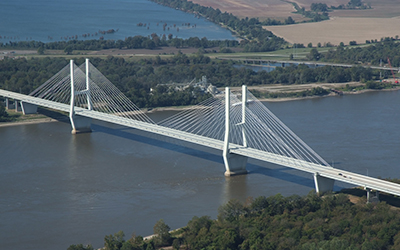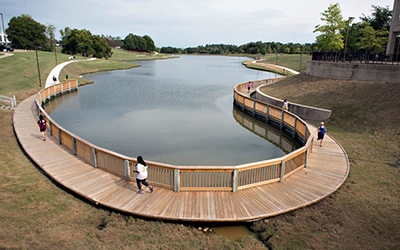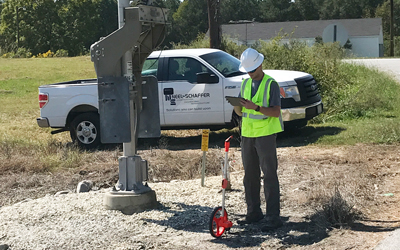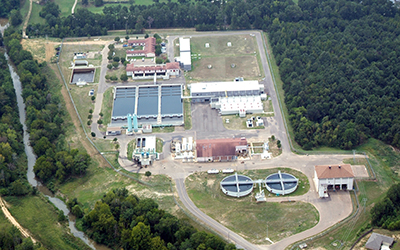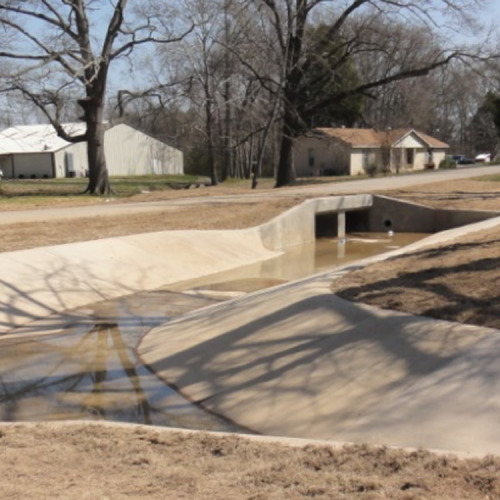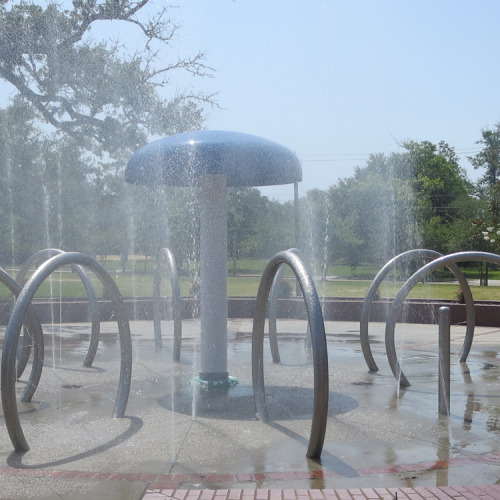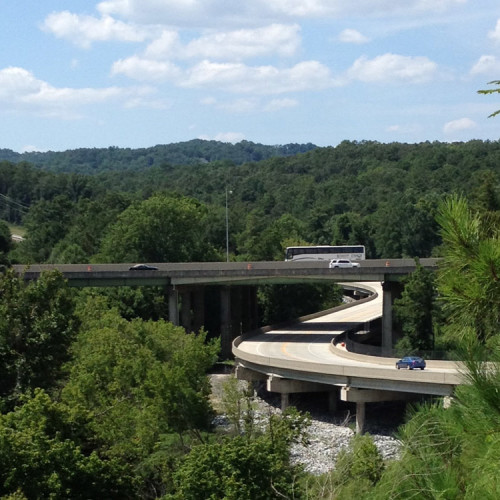The practice of stormwater management has moved from a primary focus on urban flood control to a multifaceted approach that includes using stormwater as an environmental resource; addressing compliance issues such as controlling the effects of erosion, sediment deposition, and pollutants; and initiating stormwater utilities (i.e. user fees) where appropriate.
Neel-Schaffer develops effective strategies for Municipal Separate Storm Sewer System (MS4) permit compliance; erosion prevention and sediment control (EPSC) plan development and inspections; Stormwater Pollution Prevention Plan (SWPPP) development; obtaining various environmental permit applications; and all other aspects of stormwater management (see also Water Resources).
Stormwater management carries complex planning and funding challenges for municipalities. Our experts are very familiar with various stormwater funding sources and grant mechanisms. Neel-Schaffer has developed and utilized unique approaches for gaining public and political support for stormwater initiatives such as user fee implementation and use of low impact and green infrastructure practices for new and significant redevelopment.
In today’s litigious society, in which flooding and other stormwater issues are often at the forefront, it is becoming increasingly essential to have an experienced professional capable of providing expert testimony and other legal assistance. Neel-Schaffer’s staff members have assisted many public and private clients in complex, unique legal issues with successful outcomes.
The integration of Geographic Information Systems (GIS) into the field of stormwater management has become increasingly popular, as well as vital. Neel-Schaffer’s experienced professionals utilize the latest software and hardware in order to collect stormwater infrastructure data, outfall data, drainage complaint site data, illicit discharge site data, and other hydrologic and hydraulic data that we use to build databases for everyday workflow on projects in order to increase productivity and accuracy. This includes utilizing a hand-held GPS data collector with custom drop-down menus to collect field data to generate maps for MS4 permit compliance, build databases for hydrologic and hydraulic modeling, develop map exhibits for public meetings, build databases to be used for asset management, and many other purposes.
Municipal stormwater permit development and compliance
- Stormwater Program development and implementation
- Development of Stormwater Quality Management Program (SWQMP)
- Stormwater Ordinance Development
- Completion of EPA Water Quality Scorecard
- Mapping of Stormwater Outfalls with GIS hardware and software
- Mapping of potential Illicit Discharge and Hot Spot Sites
- Analytical and visual monitoring to meet permit requirements
- Utilizing Green Infrastructure Practices and Low Impact Development to meet permit requirements
- Annual Report preparation
- Assistance with permit compliance audits
- Stormwater Utility / User Fee program development and implementation to fund stormwater management program
- City Council presentations
- Expert testimony relating to all aspects of stormwater litigation
Industrial and construction site stormwater pollution prevention plan development
- Design site-specific Stormwater Pollution Prevention Plans (SWPPPs)
- Amend SWPPPs as required by permit
- Stormwater permit application preparation
- Cost estimates for implementing and maintaining SWPPPs
- Stormwater Management
- Subcontract to developers and construction contractors to manage SWPPPs
- Perform weekly on-site inspections and prepare weekly inspection reports
- Perform third-party site stormwater inspections (QA/QC inspections)
- Identify potential problems and assist in handling current regulatory issues
- Assistance in training staff on stormwater compliance
- Assistance in showing good faith compliance to meet water quality standards through sampling
Design Review
- Third-party SWPPP design review
- On-site SWPPP review prior to commencing construction
- SWPPP audits
Education
- Advise contractors on regulatory procedures and educate clients
on specifically what regulators expect - Ensure clients achieve objectives and maintain compliance
- On-site compliance training
Post Enforcement
- Assistance in negotiating enforcement settlements with regulatory authorities
- Provide expert testimony
- Advise on agreed and unilateral orders
- Assistance addressing informal enforcements
- Assist legal counsel in reaching enforcement settlements
Construction permit Compliance Evaluation
- Mock stormwater compliance evaluation inspections done “through the eyes of a regulator”
- Accurate real-time inspection reporting through inspection, maintenance
- scheduling and non-anticipated compliance reporting via the Internet
Private Citizens
- Advise citizens on civil actions
- Sampling and monitoring

